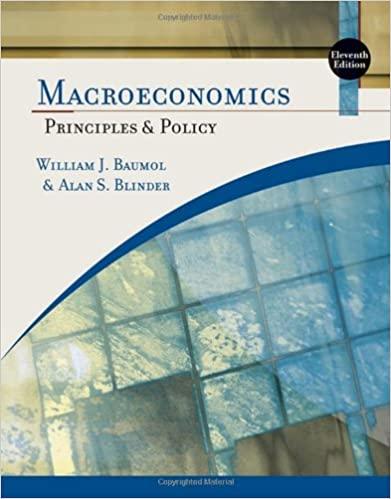Question
Scott and Jenni used to go out to eat every day, but recently have decided to stay at home and cook two meals a day.
Scott and Jenni used to go out to eat every day, but recently have decided to stay at home and cook two meals a day. Both are able to make equally tasty meals, but it takes Scott 40 minutes to make a meal while it only takes Jenni 20 minutes. Then they have to wash the dishes. Each of them takes 30 minutes to do the dishes.
a. If each makes one meal and does the dishes once per day, how much time total has Scott spent? How about Jenni?
b. If Jenni decides to cook every meal and make Scott do all the dishes, how much time will Jenni save (compared to your answer in part a.)? Will Scott save any time?
c. What is Scott's opportunity cost (in terms of number of times doing the dishes) for making one meal? What is Jenni's opportunity cost for one meal?
d. Who has the absolute advantage in making meals? Who has the absolute advantage in doing dishes?
e. Who has the comparative advantage in making meals? Who has the comparative advantage in doing dishes?
Step by Step Solution
There are 3 Steps involved in it
Step: 1

Get Instant Access to Expert-Tailored Solutions
See step-by-step solutions with expert insights and AI powered tools for academic success
Step: 2

Step: 3

Ace Your Homework with AI
Get the answers you need in no time with our AI-driven, step-by-step assistance
Get Started


